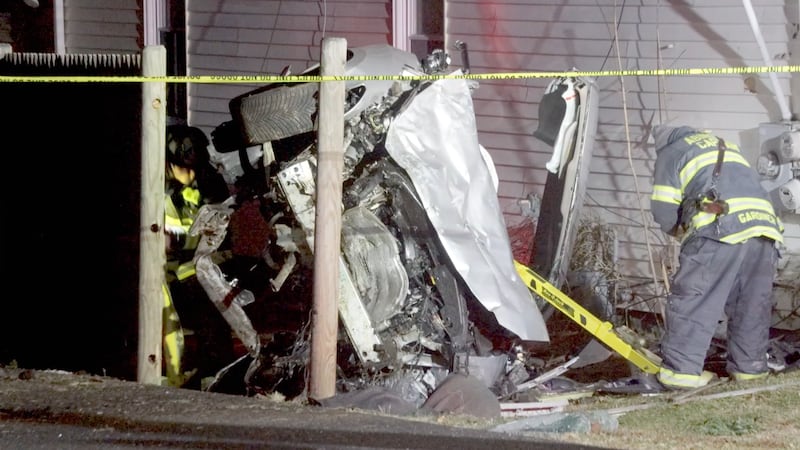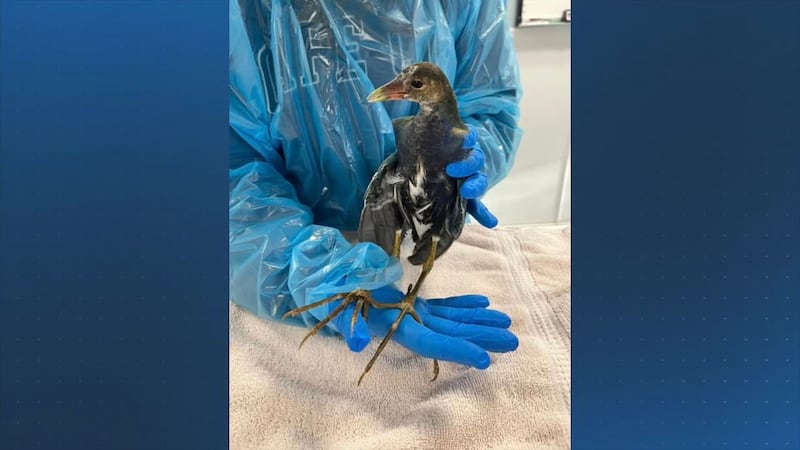BOSTON — In November, the state launched work clinics for newly arriving migrants. Now, 25 investigates has learned how many people are getting jobs.
The Healey administration wants to make sure the new arrivals to the state are moving toward being able to sustain themselves and their families. A big part of that is working. Just this week, Governor Healey put new rules in place for migrants in safety net sites hoping to get into a family shelter. They must reapply for their stay every month and demonstrate they’re seeking a job and taking English language classes.
The goal is to free up space in overburdened and at-capacity shelters, designed to be a safety net for families in Massachusetts. 25 Investigates revealed thousands of long-term Massachusetts residents are also in the shelter system. And hundreds more are on a waitlist trying to get into one. 730 families as of March 22nd.
MA companies embrace new workforce: “Look, we’ve had a hiring problem since before Covid, right? We couldn’t fill roles…”
Local companies tell Investigative Reporter, Kerry Kavanaugh, that they are in desperate need of workers. And they’re looking to the new workforce to fill jobs that, in some cases, have been open for years.
Kavanaugh went inside local businesses welcoming the additional workforce with open arms.
At Catania Oils in Ayer, she found workers meticulously inspecting bottles of cooking oils that cruise down the production line.
Some of the newest workers are learning the ropes a long way from home.
Venel Jean is a father of two and a native of Haiti.
Through a translator, Jean said, “I left my country because of political unrest.”
He says he fled after multiple death threats from gangs, including when he was working as a school principal and gang members demanded school money or they’d shoot him.
He took his pregnant wife and young son first to Brazil. From there he said his family trekked through the Amazon.
“We had to walk over dead bodies,” Jean said through a translator. “Our goal was to come here and find a better life, not just for us, but for our family that we left behind.”
Handy Joseph, also a dad, says staying in Haiti wasn’t an option.
“I’m hard working and there are a lot of people just like me who just want to come and work,” Joseph said through a translator. “If we had a good job system, I could have found good work and I could have worked very hard in my country. The way things are, I was unable to say.”
They are among the thousands of newly arriving migrants who now call Massachusetts home and have found help through the state’s emergency shelter system. But they’re also among a smaller, but growing group of people now authorized to work and have full-time jobs.
According to data from the Massachusetts Executive Office of Labor and Workforce Development requested by 25 Investigates, as of March 25th, Massachusetts employers hired 446 migrants. 583, are in English language classes.
For context, as of March 22nd, there were 3,767 newly-arrived migrants in state-run emergency shelters, though hundreds of them are children. The total number of people in the emergency shelter system for families stands at 7,512.
“Look, we’ve had a hiring problem since before Covid, right? We couldn’t fill roles, keep the roles…,” said Stephen Basile is executive vice president of Catania Oils, a family-run business for generations.
Since November, Catania Oils has hired 3 migrant workers as machine and forklift operators. They’re in the process of hiring another 3.
“They want to work. They want to be here. They want to learn,” Basile said. “They want to support their family. No different than when my great-grandfather came here.”
And Basile says they’re teaching them more than the job.
25 Investigates was invited inside the English class at the start of Jean and Joseph’s shifts.
“That’s a big opening door for me,” said Wislaine Eustache, one of the newest housekeepers at Salem Hospital.
Through a translator, she shared her own story of fleeing Haitian gang violence. She says she and her oldest daughter were once kidnapped and dropped in the middle of nowhere. She says they were only released because her daughter wouldn’t stop crying.
That trauma ultimately led her to the job in Salem.
“Don’t be discouraged. If you have a dream to do something, you can do it,” Eustache said through a translator.
“They’re not taking jobs. The positions are open and they’re taking the open positions,” said Daniel Correia, general manager of environmental services at Salem Hospital. He says his team was short-staffed for about three years. The migrants have changed that, filling 6 openings since February.
“They really wanted to work,” Correia said. “They were inspired about the whole program and just very happy to have an opportunity, a chance.”
Hurdles to work: “You need to have a place to live so that you can find a job near where you live”
“We have in the United States, millions of jobs that are open, that cannot be filled. And so, these folks crossing the border, coming in, going into the workforce are helping our economy,” said Jeff Thielman, president and CEO of the International Institute of New England or INNE. “They’re also coming because we have not been able to manage, the flow of people, as well as we should have.”
INNE, a resettlement agency, helps new arrivals get on their feet. Thielman says while most migrants here in Massachusetts are eager to fill these jobs, getting work permits is only the first piece of the puzzle.
“You need to have a place to live so that you can find a job near where you live,” he told Kavanaugh.
Thielman says more needs to be done to find and create long-term affordable housing.
“Some people who are in hotels and shelters are getting jobs near where they are. In terms of a strategy to get a permanent apartment, there’s not enough of that happening.”
For now, Wislaine Eustache and her family stay in once-empty dorms at Salem State University, converted into shelter space.
Jean and Joseph and their families are in a shelter near the Catania Oils factory.
Earlier this month, the state announced a contract with 8 resettlement agencies to help migrants find stable housing and jobs.
The nonprofits, including INNE, get a part of $10.5 million to get 400 families out of the shelter by end-of-year.
Thielman says they hope to create an efficient model the rest of the state can follow.
Migrants in Mass: “We are always thinking of what our family needs”
The newly hired workers Kavanaugh met say they are grateful for the opportunity to start anew and create a safer more stable life for their families.
“It’s giving us an amazing opportunity,” said Venel Jean. “We are always thinking of what our family needs.”
And they dream of having more someday.
“My dream is to become an entrepreneur here, to have my own business,” said Handy Joseph through a translator.
However, those dreams have taken them away from everything they knew and loved.
“They’re leaving not by choice, but because they have to,” said Jean. “They’re just looking for some stability.”
Download the FREE Boston 25 News app for breaking news alerts.
Follow Boston 25 News on Facebook and Twitter. | Watch Boston 25 News NOW
©2024 Cox Media Group





